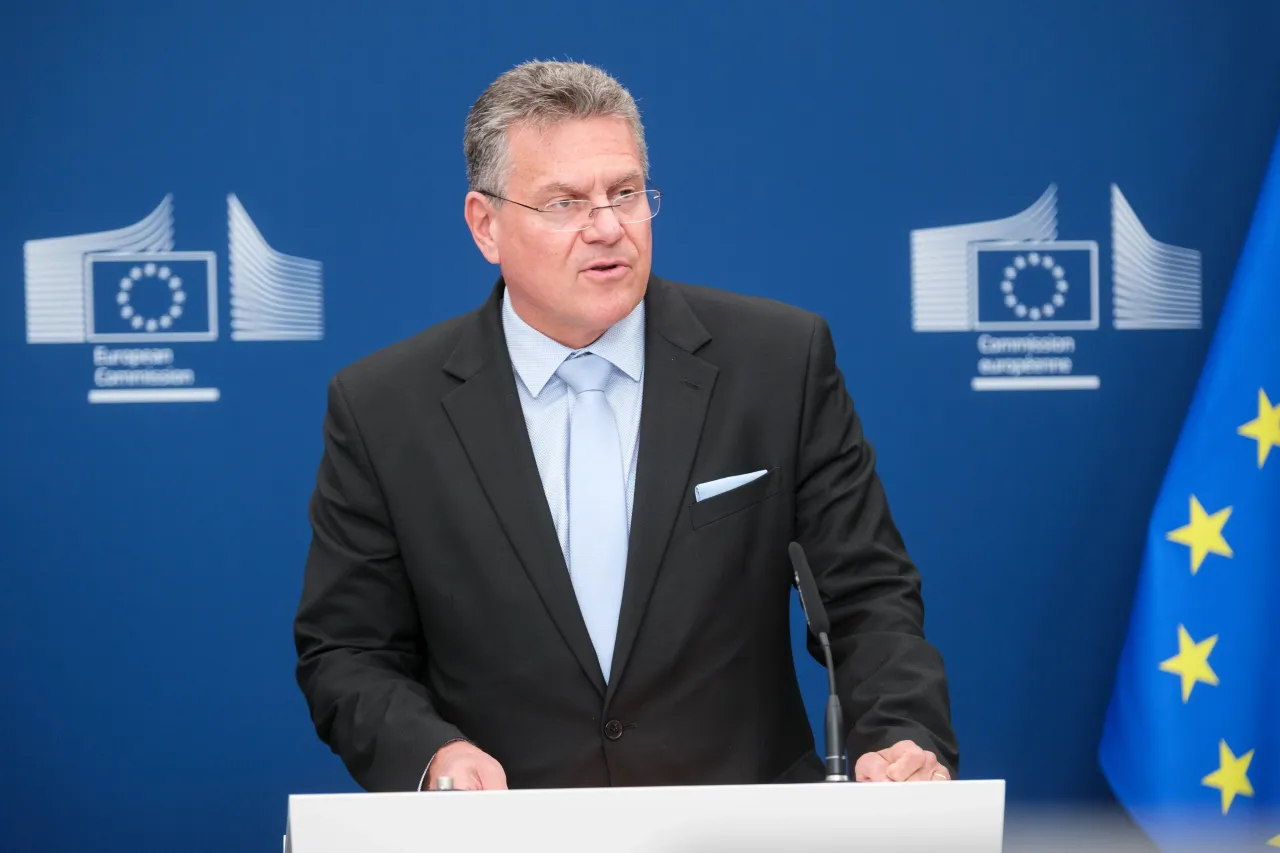Advertisement|Remove ads.
EU Willing To Accept 10% Tariff Deal, But Wants US To Cut Rates On Key Exports

The European Union (EU) is prepared to accept a 10% universal tariff on many of its exports to the US, but is pushing for lower rates or exemptions in key sectors including pharmaceuticals, alcohol, semiconductors, and commercial aircraft.
The discussions come ahead of a July 9 deadline set by U.S President Donald Trump, after which tariffs on nearly all EU exports could jump to 50%.
The EU, which oversees trade policy for the bloc, considers the proposal to slightly favor the U.S. but feels it is potentially acceptable if critical sectoral concerns are addressed, according to a Bloomberg report.
The bloc is also reportedly seeking exemptions from the present U.S. tariffs, which stand at 25% for vehicles and vehicle parts, and 50% for steel and aluminum materials.
EU Trade Commissioner Maros Sefcovic is reportedly in Washington this week to lead a delegation seeking an interim agreement that would keep negotiations on track and avert a significant increase in tariffs.
The U.S has submitted a proposal covering tariff and non-tariff barriers, as well as strategic cooperation, though full details have not yet been shared with EU member states.
EU exporters shipped 52.8 billion euros ($62.2 billion) in cars and car parts to the U.S in 2024. Germany, Italy, and France were among the top shippers to the U.S market.
The U.S has tariffs on about 70% of EU imports, or about €380 billion.
The EU has approved retaliatory tariffs on 21 billion euros of U.S goods, with an additional 95 billion euros list prepared.
Targets include Boeing aircraft, bourbon, soybeans, and U.S.-made vehicles.
The bloc is also considering non-tariff responses such as export controls and procurement restrictions should talks fail.
Officials reportedly outlined four scenarios: a balanced deal, an unacceptable U.S offer, a deadline extension, or Trump exiting talks and raising tariffs.
In case of the last scenario, the EU would likely retaliate with all options.
The SPDR S&P 500 ETF Trust (SPY), which tracks the S&P 500, is up 5.7% year-to-date, while the Invesco QQQ Trust, Series 1 (QQQ), which tracks the Nasdaq-100, has gained 8.1%.
The SPDR Dow Jones Industrial Average ETF Trust (DIA) is also up 4% this year.
Meanwhile, the iShares Europe ETF (IEV) is up 21.9%so far this year.
On Stocktwits, retail sentiment was ‘neutral’ for SPY, ‘extremely bearish’ for QQQ, and ‘bullish’ for both DIA and IEV; message volume was ‘normal’ across all ETFs, except for DIA, which saw ‘high’ activity.
For updates and corrections, email newsroom[at]stocktwits[dot]com.














/filters:format(webp)https://news.stocktwits-cdn.com/large_iren_OG_jpg_ba842dd11a.webp)
/filters:format(webp)https://st-everywhere-cms-prod.s3.us-east-1.amazonaws.com/IMG_9209_1_d9c1acde92.jpeg)
/filters:format(webp)https://news.stocktwits-cdn.com/Getty_Images_2240705652_jpg_64172b74f3.webp)
/filters:format(webp)https://news.stocktwits-cdn.com/IMG_4530_jpeg_a09abb56e6.webp)
/filters:format(webp)https://news.stocktwits-cdn.com/large_Trade_Desk_jpg_e7ed8e2266.webp)
/filters:format(webp)https://news.stocktwits-cdn.com/large_wall_street_bull_OG_jpg_791f8f3b40.webp)
/filters:format(webp)https://news.stocktwits-cdn.com/IMG_8805_JPG_6768aaedc3.webp)
/filters:format(webp)https://news.stocktwits-cdn.com/Getty_Images_2231786706_jpg_5f9940e890.webp)
/filters:format(webp)https://st-everywhere-cms-prod.s3.us-east-1.amazonaws.com/unnamed_jpg_9dff551b50.webp)
/filters:format(webp)https://news.stocktwits-cdn.com/large_Getty_Images_2259293616_jpg_38a91a25a8.webp)